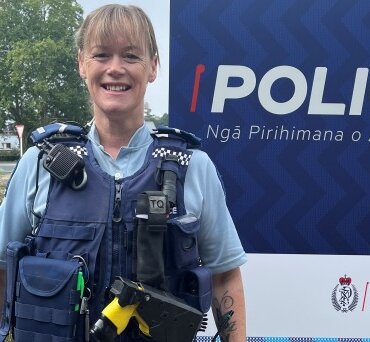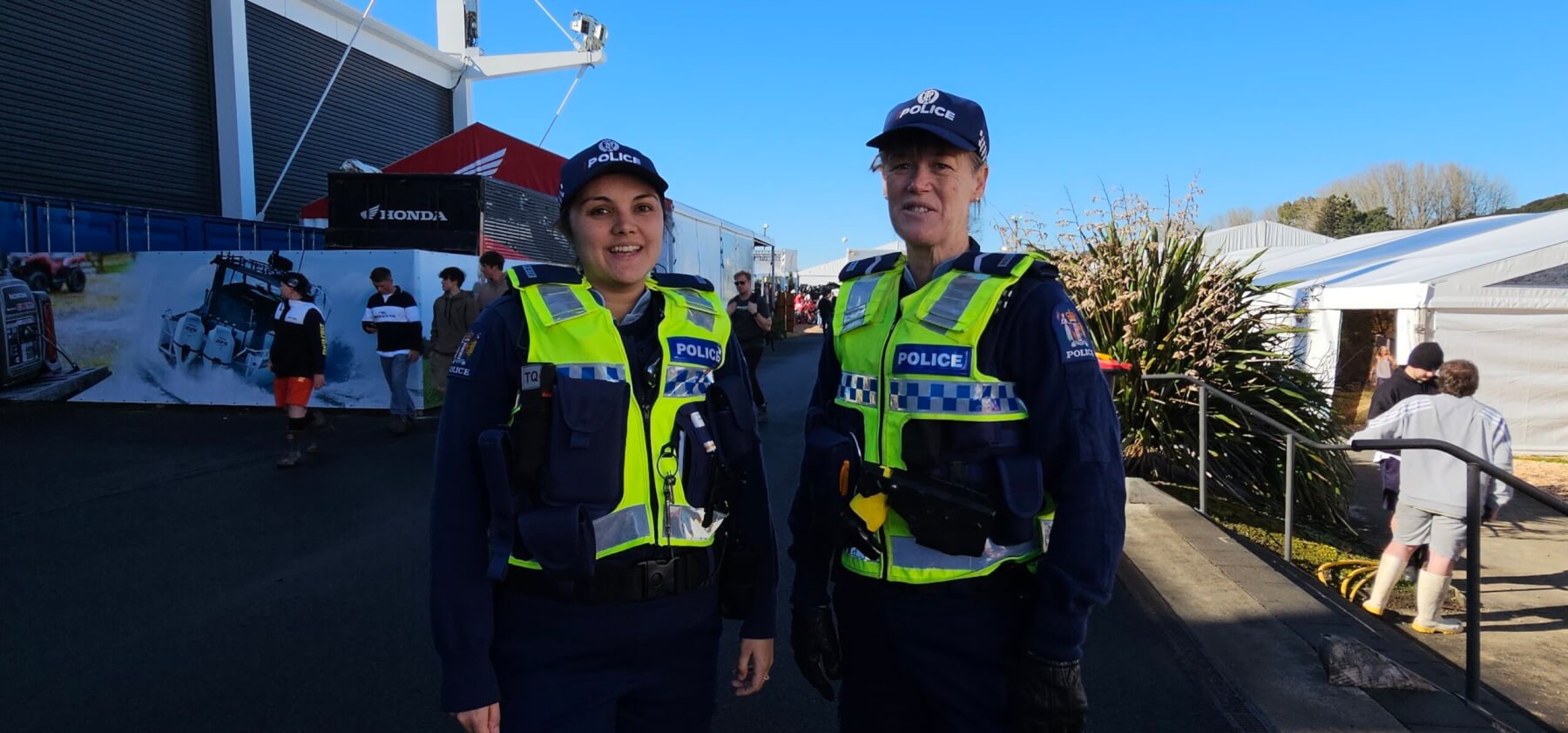
Deb Hann

Senior Constable Deb Hann and Dani Hibdige.
Last Sunday Youth Aid Constable Dani Hibdige and I took the lucky winners in the recent Bluelight Colouring Competition up to Rainbow’s End for the National Bluelight Fun Day.
There were a lot of excited faces waiting for us at the station at 8.30am. We set off together and arrived just after the theme park opened. The day was open to Bluelight branches from all around the North Island and Rainbow’s End was sold out. For the next four and a half hours, the rides totally delivered in adrenaline and fun. We had very happy and also very tired children when we got home to Cambridge.
In other news, police attended a family harm incident recently which was reported by concerned neighbours. On arrival, the male party was found to be wanted for a shop lifting incident and theft of scaffolding. He is now appearing before the courts on related charges.
It is great to see our community standing up to help victims of family harm. Abuse doesn’t have to be physical. Psychological and emotional harm can be equally as damaging to a victim, in ways that are not so easily seen, yet long lasting. If you see or hear family harm occurring, do not hesitate to call 111. The cycle of abuse does not stop without intervention and family harm episodes only escalate in severity over time. If supports are put in place early, there is a chance of changing a situation for the better.
Recently John Parsons delivered talks on Cyber Safety at a few schools around town. It is especially topical because we continue to have reports of bullying through Snapchat, Instagram and Tik Tok. The Harmful Digital Communications Act 2015 was introduced to address such matters.
The internet follows us everywhere and is a way of sharing information that can be used positively but also which can cause distress. Digital communication is any form of electronic communication including for example emails, text, messages, voice mail messages, social media content (for example blogs, posts, comments, images and videos), content on messaging and communication apps (such as WhatsApp and Messenger), content on image and video-sharing apps (Snapchat, YouTube) and posts on community online forums (or chatrooms).
Digital harm occurs when someone posts something which is likely to cause embarrassment, intimidation or harassment to an individual. If we are grossly offensive, post indecent or obscene content or disclose sensitive personal facts about a person we can be held to account. To qualify, the content must cause harm, meaning serious emotional distress, to a specific individual/s (it does not include posts which target an organisation).
Please be aware of this and think before you post and if you are a victim of online bullying, contact Netsafe or Police.








